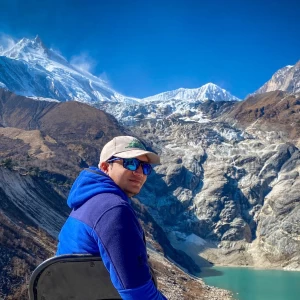Plan your Mera Peak adventure with our comprehensive budgeting guide. Discover costs, tips, and essential insights for a successful climb. Read more!
How Much Does It Cost To Climb Mera Peak?
Table of Contents
Mera Peak is perfect if you’re dreaming of climbing a high-altitude peak without needing advanced technical skills. Standing at 6,476 meters, it is the highest trekking peak in Nepal.
Climbers can enjoy breathtaking views of five of the world’s 8,000-meter giants, including Everest and Kanchenjunga. This adventure offers an excellent challenge for both beginners and experienced climbers.
The Mera Peak cost depends on several factors. On average, climbers can expect to spend between $3,000 and $4,500. This cost usually includes permits, guides, accommodation, and meals during the trek and climb.
Also, check Tours and Trekking in Nepal
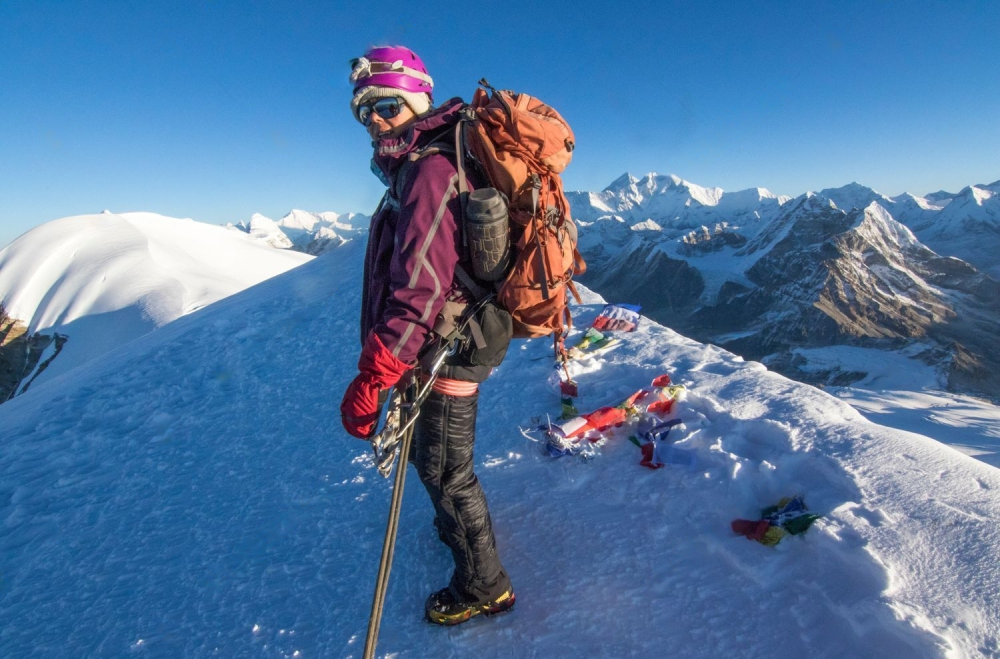
Breaking Down the Cost of Climbing Mera Peak
Climbing Mera Peak is an exciting challenge for many adventurers. Understanding the Mera Peak climbing cost, helps you plan better for the journey. The price includes several key factors like permits, guide and porter services, and more. Each of these elements plays an important role in making your climb safe and enjoyable.
The cost of climbing Mera Peak starts with permits. You will need a Mera Peak Climbing Permit. You also need an entry fee for Makalu Barun National Park.
Guides and porters are necessary for the trek. Guides help with navigation and support during the climb. Porters carry your gear along the route. The cost for a porter is usually between $25 and $35 per day. Trekking Guides typically charge between $30 and $50 per day. While the climbing Sherpa charges $60+ per day.
Accommodation and food costs are also part of the total expense. During the trek, basic lodges or tea houses provide accommodation, and meals (breakfast, lunch, and dinner) often cost $3 to $7 per meal. Additionally, climbers need to budget for climbing equipment, which can either be rented or purchased, adding around $300 to $500 if you don’t have your own.
Transportation costs depend on your starting point. Most climbers fly from Kathmandu or Manthali to Lukla, which costs around $167 to $217 each way. Additional costs include tipping guides and porters, and travel insurance. Especially one that covers high-altitude trekking, which could cost around $200 or more.
Permit Costs for Mera Peak Summit
Before starting your Mera Peak climb, you need several permits. These permits allow you to trek and climb legally in the area. The Mera Peak climbing costs for permits depend on the season.
In the spring (March to May), the permit costs $70 per person. In autumn (September to November), it hikes to $125 per person.
You’ll also need two additional permits. The Makalu Barun National Park Permit costs $30 per person, and the Khumbu Pasang Lhamu Rural Municipality Entry Permit is $30 per person. These fees help maintain the trails and protect the region's environment.
Guide and Porter Fees for Mera Peak
Hiring a guide and porter for your Mera Peak climbing journey is essential for safety and support. Guides help with trail navigation and ensure your safety during the journey. Porters carry your heavy bags, letting you focus on the climb without extra weight.
The Mera Peak cost for a licensed guide is between $40 and $60 per day. A porter costs $25 to $35 per day. For a typical 18 to 20-day expedition, these costs can add up to around $1,000 to $1,500 per person. This includes the support needed to make your climb safer and more enjoyable.
Food and Accommodation Costs
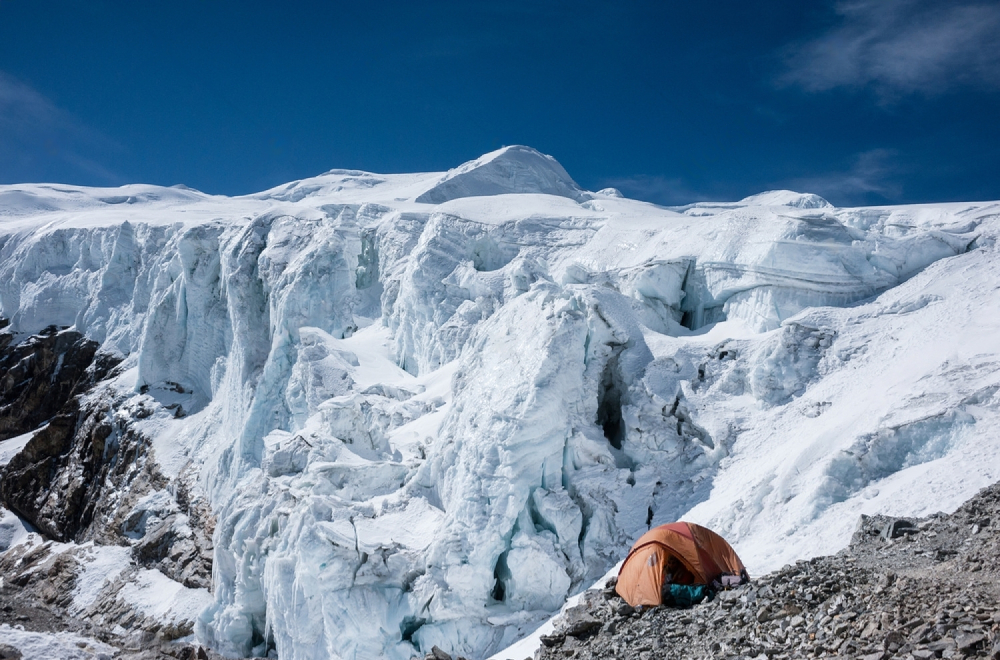
When climbing Mera Peak, the cost of food and accommodation rises as you ascend due to the remoteness of the area. It’s important to know what to expect for meals and lodging during your trek.
At lower altitudes, like from Lukla to Khare, the cost for food and accommodation ranges from $25 to $40 per day. Higher up, at places like Mera Base Camp, it increases to $40 to $60 per day. Meals are simple but filling, typically including dal bhat, noodles, potatoes, fried rice, soups, and eggs.
Some lodges may offer snacks like biscuits or tea, but the variety decreases as you climb higher. Rooms are shared with basic facilities, and heating is often unavailable at higher altitudes.
Climbing Gear Costs (Rental or Purchase)
Mera Peak Climbing requires special gear and climbing equipment to ensure safety in high-altitude conditions. Whether you rent or buy, having the right equipment is important for a successful climb.
The Mera Peak cost for renting gear in Kathmandu typically ranges from $100 to $200 for a complete set. This set includes essentials like crampons, ice axes, harnesses, helmets, and sturdy boots.
If you prefer to purchase new gear, expect to spend between $500 and $1,500, depending on the brand and quality. Some trekking agencies may also include gear rental in their package, so it’s worth checking in advance.
Transportation Costs: Kathmandu to Lukla, Manthali to Lukla and Beyond
Getting to Mera Peak usually starts with reaching Lukla, the main gateway for many treks in the Everest region. There are two main options for transportation, with costs varying based on the route you choose.t
The Mera Peak cost for round-trip flights from Kathmandu to Lukla is around $435 per person. If you fly from Manthali to Lukla, the round-trip cost is lower, at about $165 to $167 per person. For those looking for more adventure, taking a jeep to Salleri and then trekking to Lukla is an option. This reduces costs but adds 2 to 3 extra days to your trek.
Physical Preparation and Training
Embarking on a Mera Peak climbing adventure requires proper preparation and the right equipment to ensure a successful and enjoyable experience. Mera Peak requires a good level of physical fitness and stamina. It is essential to prepare your body for the challenge by engaging in regular exercise and pre-climbing training. Here are some tips to help you prepare:
Cardiovascular exercises: Engage in activities that improve your cardiovascular health, such as running, cycling, or swimming. These exercises will help build the endurance needed for long trekking days.
Strength training: Incorporate strength training exercises into your routine to build muscle and endurance. Focus on exercises that target your legs, core, and upper body to ensure you can handle the physical demands of the climb.
High-altitude training: If possible, train at high altitudes to acclimatize your body to lower oxygen levels. This can help reduce the risk of altitude sickness and improve your overall performance during the climb.
Mental preparation: Prepare yourself mentally for the challenge by practising mindfulness, meditation, and positive self-talk. Mental resilience is crucial for overcoming the physical and emotional challenges of Mera Peak ascent.
Additional Costs: Insurance, Tips, and Emergency Services
When planning to summit Mera Peak, it’s easy to overlook the extra costs that may arise. Beyond the basic expenses, there are additional costs to consider, such as insurance, tips, and emergency services. These costs are important for your safety and well-being during the trek.
It’s essential to have proper high-altitude insurance that includes evacuation coverage. This type of insurance usually starts at $200 per person. It can save you thousands of dollars if a rescue is needed due to altitude sickness or injury.
Additionally, the Nepal Mountaineering Association charges $500 per person as a garbage deposit for the Mera Peak Expedition. This is to maintain the trail’s cleanliness for carbon emissions.
Tipping your guides and porters is another cost to keep in mind after a safe and successful climb. A fair tip for a climbing guide is typically 10%-15% of their total fee, which is about $100-$150. For porters, the usual tip is around $50-$80. This is a common way to show appreciation for their hard work.
In case of emergencies, a helicopter rescue might be necessary. Without insurance, this service can cost between $2,000 and $5,000. Having insurance with evacuation coverage will ensure you are prepared for any unexpected situations.
Total Cost Estimate for Mera Peak Climbing
The cost of the Mera Peak climbing trip varies based on whether you choose a group trip or a private trip. Having a clear idea of the expenses will help you budget for this exciting challenge.
For a group trip, expect to pay around $3,000 per person. This price usually includes permits, a guide, porters, food, accommodation, and transportation for an 18-20 day trip.
If you prefer a private trip, the cost will be higher, ranging from $4,500 to $5,000 per person. This price includes more personalized services, such as private camps, a private guide, and additional porters for support. These added comforts make the experience more tailored to your needs.
Factors That Affect the Cost of Mera Peak Climbing
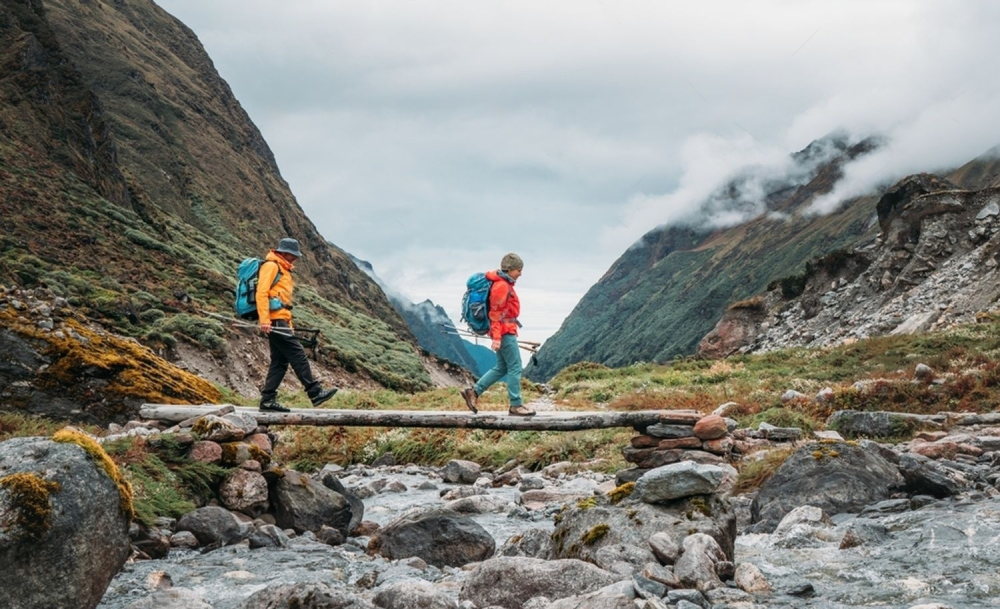
When planning to climb, several factors will affect the overall cost of your Mera Peak climbing expedition. Being aware of these can help you better prepare for the adventure. Understanding how season, group size, trip type, and route choice impact pricing is essential for budgeting.
The season you choose for your climb plays a big role in the cost. Spring and autumn, being the most popular times, often have higher prices due to the high demand for services.
Group size also influences the cost. Larger groups tend to share the expenses for guides and porters, which reduces the price per person. Smaller groups or private climbs, however, will be more expensive.
Private trips offer more comfort and flexibility but come at a higher cost. With private guides, porters, and tailored services, you’ll pay more for the personalized experience compared to a group trip.
The route you choose will also impact the cost. Taking a longer route increases expenses for food, accommodation, and other services. A shorter route reduces these costs but might limit your experience.
Why Mera Peak Is Worth the Cost
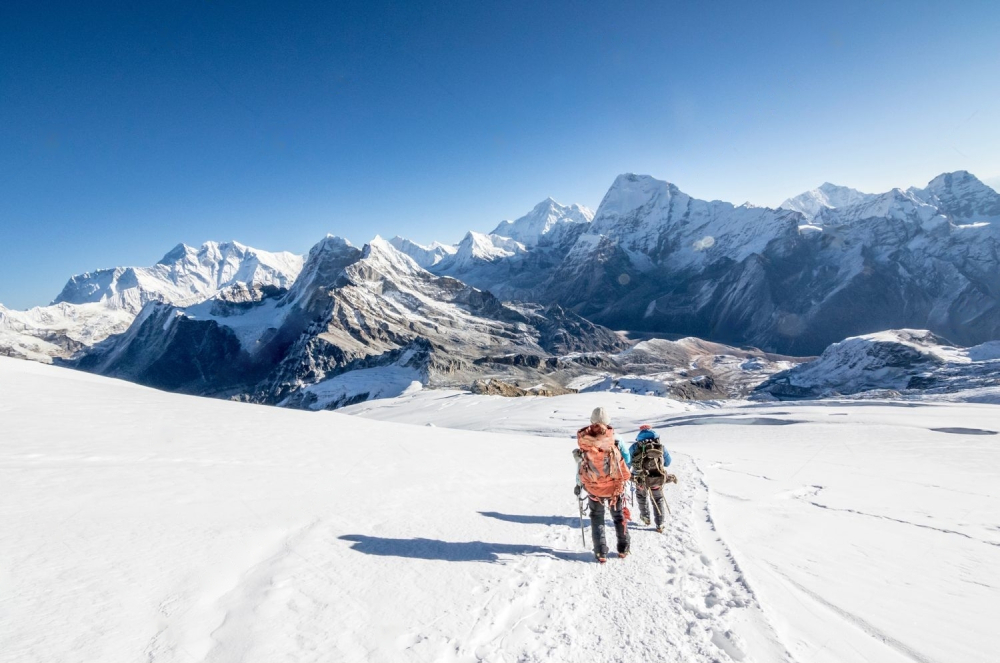
The cost to climb Mera Peak might seem expensive, but it’s truly a once-in-a-lifetime adventure. The memories and experiences you gain from a Mera Peak climbing package are priceless. For those seeking a challenge and an unforgettable journey, this peak offers it all.
Reaching the summit of a 6,000-meter peak like Mera Peak is a remarkable achievement. The breathtaking views of the Himalayas, including Everest, Lhotse, and Makalu, make it worth every penny.
The adventure of summiting a 6,000-meter peak is a once-in-a-lifetime achievement. Mera Peak offers breathtaking views of the Himalayas and a rewarding challenge. This adventure creates lasting memories. The investment in both time and money is truly worthwhile.

